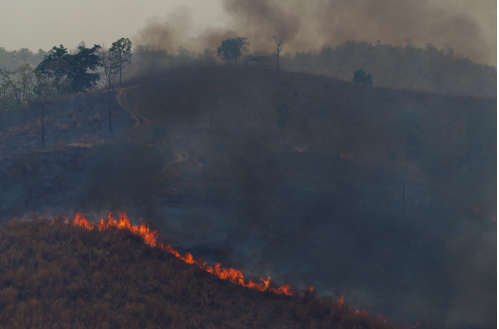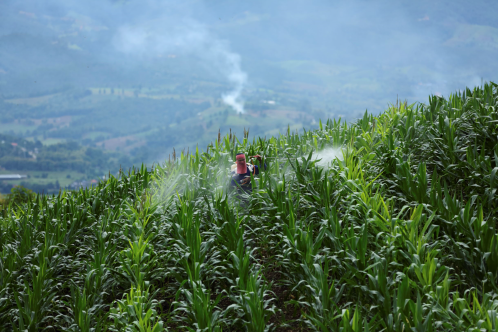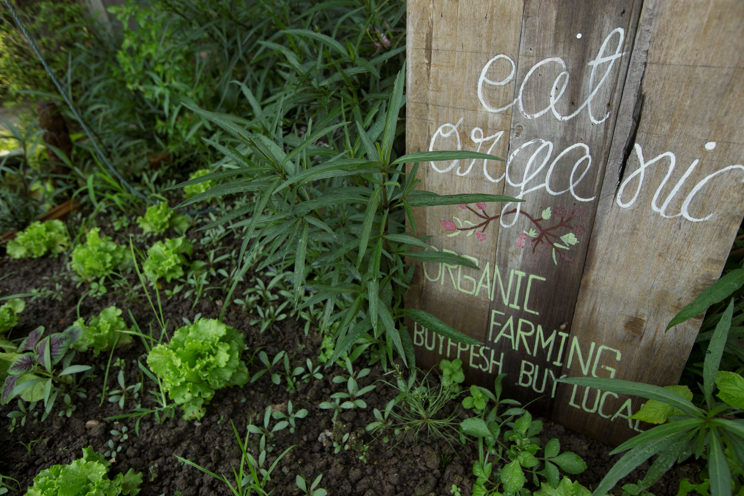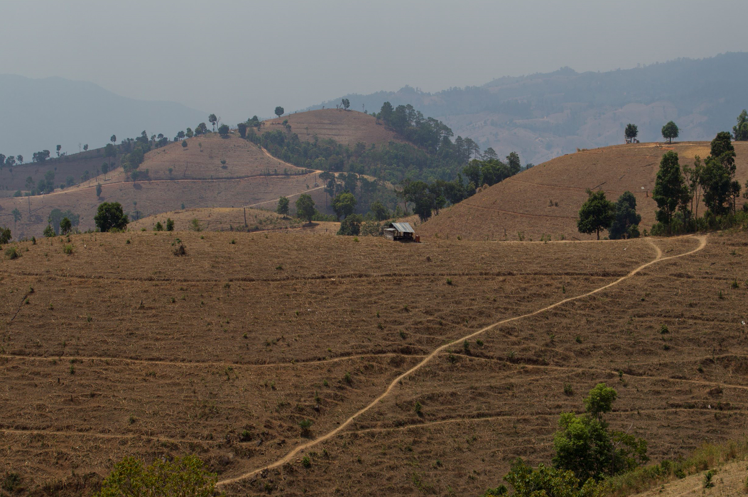Degraded landscapes – our SCP project in Thailand aims to restore them using an agroforestry approach © Baramee Temboonkiat for WWF-Thailand
The situation at hand
In Thailand, about 800,000 ha of forests have been encroached upon for cash crop plantations, primarily for maize. These are mostly clustered in the watershed areas in northern Thailand. In preparing the land for cultivation, smallholder maize farmers often choose to adopt a method of open burning of agricultural residues, leading to heavy haze pollution. Maize is used as animal feed in meat production, which Thailand exports to the world market.
Our SCP project addresses a number of environmental and social challenges as well as climate change issues:
- Conventional food production is often associated with intensive agrochemical monocultures and deforestation, trading off the natural capital of forest landscapes and their ecosystem services
- Intensive agrochemical practices have caused soil degradation, droughts, decline of pollinators and impacts on agricultural productivity
- Haze pollution occurs regularly due to slash and burn practices, and forest fires are more catastrophic as they are exacerbated by climate change conditions
- Production relies heavily on agricultural inputs owned by agribusinesses, leaving only few benefits and little bargaining power to smallholder farmers (growing inequality within the food chain)
- Climate impacts threaten food security, and with limited adaptation and mitigation practices in place, food systems are becoming more and more vulnerable
- Legal and economic measures for promoting sustainable agriculture do not exist.

Flames from the burning of land to open soil surfaces for maize plantations © Baramee Temboonkiat for WWF-Thailand

Spraying of pesticides in a monoculture maize plantation © Baramee Temboonkiat for WWF-Thailand
The solution model – agroforestry and agroecology
The Thai component of our SCP project has developed the “FLR349” fund to provide financial assistance to farmers for their transition away from forest-encroaching, input-intensive monoculture systems, into a farming system based on the King’s Philosophy of “Three Forests, Four Benefits” (referring to the 9th king). The King’s principles promote diversification of incomes through inter-cropping and agro-forestry, which will generate environmental co-benefits, such as the capture of carbon, the mitigation of water and nutrient losses through reduced runoff and erosion, and the favoring of higher degrees of wild and agro-biodiversity. The fund also supports sustainable value chain development, which could become a model for farmers living under similar conditions.
More on the FLR349 fund at http://www.wwf.or.th/en/scp/reforestation_activity/flr_349/

© Baramee Temboonkiat for WWF-Thailand
Agroforestry as the solution?
As a multifunctional system agroforestry can provide a wide range of environmental, economic and sociocultural benefits for land users at all levels. Agroforestry systems respect structural and ecological diversity of species in ecosystems. Trees are able to modify microclimatic conditions, such as temperature, water vapour content of air and wind speed. This has beneficial effects on crop growth and animal welfare. Furthermore, by including trees into the agricultural system soil fertility can increase, as trees can build up organic matter and can mediate nutrient cycling. Some tree species can fixate nitrogen from the atmosphere and convert it into a form that can be utilized by plants. That way agroforestry is able to reduce the need for synthetic fertilizers and the concentration of chemicals.
Watch the story of a farmer who successfully uses the concept of agroforestry.

